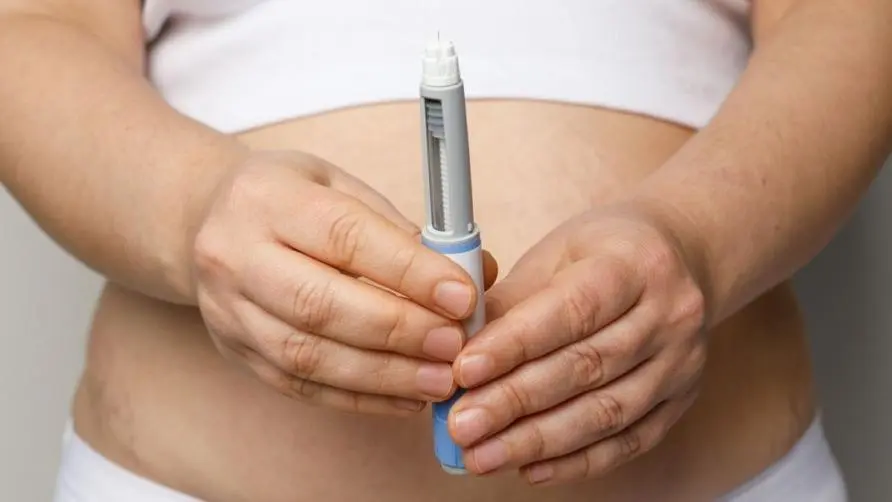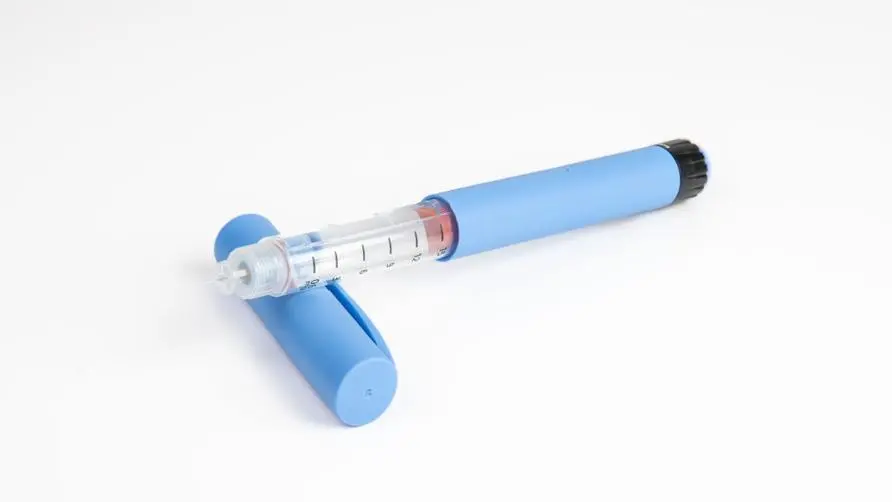Diabetes Physician Q&A (2): Is diabetes caused by obesity? Can diabetics lose weight by fasting? How to maintain blood sugar stability

After the body digests and absorbs sugary foods, it converts it into glucose for use as energy. In this process, the most important hormone that helps the body absorb and utilize sugars is “insulin.” Once the body cannot produce enough insulin, or the body develops insulin resistance, it may cause high blood glucose levels, which is diabetes.
Currently, the two main causes of type 2 diabetes are insufficient insulin secretion and insulin resistance. Although insulin resistance is related to genetic genes, the more important risk factors for the prevalence of diabetes are the obesity epidemic and a lifestyle of reduced activity.
What are the diagnostic criteria for diabetes? What numbers should you pay attention to during the health checkup?
According to the diagnostic criteria for diabetes defined by the World Health Organization, as long as:
fasting blood glucose is greater than 126 mg/dl,
oral glucose test is greater than or equal to 200 mg/dl 2 hours later,
random blood glucose is greater than or equal to 200 mg/dl dl combined with typical symptoms of diabetes (eating more, drinking more, urinating more) or ketoacidosis can be diagnosed as diabetes if 2 of the 3 criteria are met.
The diagnostic criteria of the American Diabetes Association and the European Diabetes Study Group add glycated hemoglobin (A1C) greater than 6.5%, as long as 2 of the above 4 criteria are established in the same blood test, or blood tests at different times meet 2 The above indicators belong to the scope of diabetes.
People whose blood sugar exceeds the normal range but have not yet reached diabetes are called “diabetes high-risk groups” and are also called “pre-diabetes” and are related to obesity, hyperlipidemia, and high blood pressure. Studies have found that adjusting a poor lifestyle can reduce the risk of diabetes by more than 50%. Paying attention to weight management and regularly checking whether the blood sugar level exceeds the standard can help prevent the occurrence of diabetes.
Type 2 diabetes often has hidden symptoms in the early stages, and patients may not be aware of it. Once blood sugar gradually rises, there may be symptoms of excess (eating more, drinking more, urinating more), fatigue, weight loss, blurred vision, itching of the vagina or wounds that are not easy to heal. Patients will also explain the cause of their symptoms themselves, thinking that they are just too tired, not sleeping well, drinking too much water, etc. There are also many patients who are discovered to have diabetes because of infection, surgery, or health check-up.
Is diabetes caused by obesity? Which bad habits are more dangerous?
The body’s blood sugar stability is controlled by a very sophisticated endocrine mechanism, which is balanced by insulin, glucagon and various hormones.
When too many calories are taken in, the body’s blood sugar will rise, which will increase the secretion of insulin and convert the excess glucose into glycogen and fat for storage. Once the body is in a state of high blood sugar for a long time, it will cause obesity, insulin resistance, metabolic syndrome, and even diabetes.
Bad living habits are the main reason for the increase in the number of people with diabetes year by year, such as moving less and eating more, consuming too much sugary drinks, etc., which can lead to weight gain, obesity and insulin resistance. In addition, polygenic inheritance is also related to diabetes. If there is a family history of diabetes and an unhealthy lifestyle, the risk of diabetes will be greatly increased.
“It is worth reminding that type 2 diabetes is a slow process of blood sugar “from normal to abnormal”. The symptoms are often not obvious in the early stage, and the causes are related to family genetics, diet, low activity and obesity. In recent years, weight management and weight loss have become popular, and the 168 fasting method has become a weight loss method that many people try. However, if diabetics rashly try extreme fasting diet control, it is likely to cause excessive fluctuations in blood sugar, and even risk hypoglycemia. Diabetics are reminded to abide by four major principles: avoid high-sugar diet, exercise regularly, take medication for control, and measure blood sugar regularly.”
Can diabetics fast without food? How to detect hypoglycemia?
Although overweight and obesity are closely related to diabetes, if people with diabetes adopt extreme dietary control, it may cause more dangerous “hypoglycemia”. Especially for older patients with diabetes, it will not only cause dizziness, trembling hands, cold sweats, hunger, and even immediate dangers such as coma.
Therefore, it is important to eat regularly after taking medicine or insulin. If you have no appetite and neglect to eat, you should postpone taking insulin or drugs with hypoglycemia side effects. When symptoms of hypoglycemia occur, sugar should be replenished in time. It is best to maintain three regular meals on weekdays to reduce the chance of hypoglycemia.
In addition, diabetes sometimes causes hypoglycemia or the “dawn phenomenon” in the middle of the night. Involuntary hypoglycemia can easily affect blood sugar stability and make patients fearful of blood sugar control. In the past, it was still possible to miss hyperglycemic or hypoglycemic events using a single blood draw four times a day. Nowadays, thanks to technology, there are auxiliary blood glucose monitoring tools such as continuous glucose monitors (CGM) that can immediately provide blood glucose data and warn of high and low blood sugar conditions, assist patients in making immediate medication or lifestyle adjustments, and help maintain blood sugar levels. Blood sugar is stable.
Diabetes is an important risk factor for chronic kidney disease (CKD). The prevalence and incidence of kidney dialysis in Taiwan ranks first in the world. As the prevalence of diabetes increases, diabetes has become the main reason for dialysis (kidney dialysis) in Taiwan. Various literature studies have pointed out that actively controlling blood sugar can reduce or delay kidney disease. To prevent the occurrence of diabetes, diabetic patients should regularly detect albumin and creatinine and estimate renal function indicators such as glomerular filtration rate.
Why is it easy for diabetes to undergo kidney dialysis? What symptoms of kidney disease should you watch out for?
Insulin is a hormone needed by the body, and intervening to supplement insulin will not cause kidney damage. In the past, people with diabetes were given insulin when they entered the advanced stage and faced kidney dialysis as the disease progressed. This created the wrong impression among the public. In fact, early and stable blood sugar control is an important key for diabetics to protect organ function, especially to avoid complications of kidney disease.
However, because diabetes is closely related to kidney disease, diabetes accounted for 47% of the diseases suffered in the year before dialysis. When the kidneys filter blood with high blood sugar concentrations for a long time, it is easy for the kidney cells to undergo structural changes, thereby damaging the kidney’s filtration function. Once kidney function abnormalities are discovered in diabetes, there is an average risk of requiring dialysis within about 10 years.
Local data from Taiwan shows that about 51.1% of diabetics are unaware of the risk of kidney disease. People with diabetes are reminded to pay attention to the early symptoms of kidney disease: bubbles (bubbly urine), water (edema), high blood pressure (hypertension), anemia (anemia), fatigue (burnout), and seek medical attention as soon as possible to determine the grade of kidney disease through proteinuria and renal function numerical tests.
Extended reading:
Skip breakfast and “fast to lose weight”? Diabetes may lead to severe hypoglycemia





